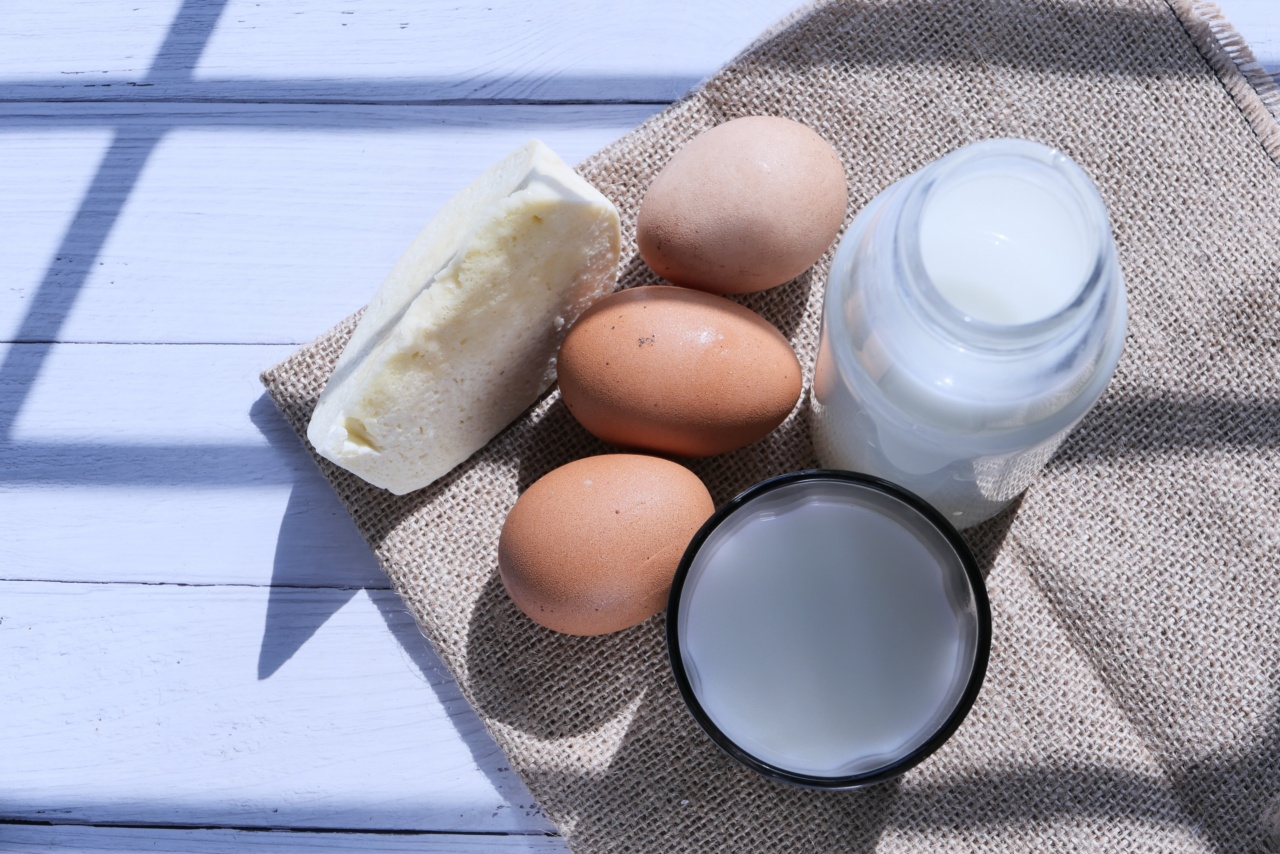Eggs are one of the most versatile and nutritious foods found in nature. Packed with essential vitamins, minerals, and proteins, eggs are a beloved ingredient in various cuisines around the world.
While there are countless ways to prepare eggs, it’s important to understand that the cooking method can significantly impact their nutritional value. In this article, we will uncover the most nutritious way to prepare eggs so that you can enjoy all their health benefits to the fullest.
The Health Benefits of Eggs
Eggs are often called a nutritional powerhouse for good reason. They are a rich source of high-quality protein, containing all the essential amino acids the body needs. Protein is crucial for muscle growth, repair, and maintenance.
In addition to protein, eggs are packed with various vitamins and minerals, including vitamin B12, vitamin D, vitamin A, iron, selenium, and choline, to name a few.
Choosing the Right Eggs
Before diving into the cooking methods, it’s important to choose the right eggs. When purchasing eggs, opt for organic, free-range eggs whenever possible.
These eggs come from hens that are raised in a more natural environment, which results in a higher nutritional content. Free-range eggs also tend to have a better balance of healthy omega-3 and omega-6 fatty acids.
Hard-Boiled Eggs
One of the simplest and healthiest ways to prepare eggs is by hard-boiling them. To make hard-boiled eggs, place them in a saucepan filled with cold water and bring it to a boil.
Once boiling, reduce the heat and let the eggs simmer for about 9-12 minutes. Afterward, transfer the eggs to a bowl of ice water to stop the cooking process.
Hard-boiled eggs retain most of their nutrients as they are not exposed to high heat. They are an excellent source of protein and provide essential vitamins and minerals.
Hard-boiled eggs make for a convenient and protein-rich snack or can be used in salads and sandwiches.
Poached Eggs
Poached eggs are another nutritious option. To poach an egg, bring a pot of water to a gentle simmer and add a splash of vinegar. Crack the egg into a small bowl and gently slide it into the simmering water.
Let it cook for about 2-4 minutes until the white is set but the yolk is still soft. Using a slotted spoon, carefully lift the egg from the water.
Unlike frying or scrambling, poaching requires only water and does not involve any added fats or oils. This makes it a healthier way to cook eggs. Poached eggs are a great addition to breakfast bowls, salads, or avocado toasts.
Scrambled Eggs
Scrambled eggs are a classic breakfast option. To prepare scrambled eggs, crack the eggs into a bowl and whisk them until well mixed. Heat a non-stick skillet over medium heat and add a small amount of oil or butter.
Pour the whisked eggs into the pan and stir them gently until they reach the desired consistency.
Scrambled eggs are easy to make and are a good source of high-quality protein. However, it’s important to use minimal oil or butter to keep them healthier.
To increase the nutritional value further, you can add veggies like spinach, mushrooms, or bell peppers to your scrambled eggs.
Sunny-Side-Up Eggs
Sunny-side-up eggs are prepared by cooking eggs directly in a skillet without flipping them. Heat a non-stick skillet over low to medium heat and add a small amount of oil or butter.
Crack the eggs into the pan, keeping the yolks intact, and cook them until the whites are set but the yolks are still runny.
Sunny-side-up eggs can be enjoyed with whole-grain toast or as a topping for dishes such as burgers or salads.
However, it’s important to note that sunny-side-up eggs require some fat for cooking, so it’s advisable to use healthier cooking oils like olive oil.
Baked Eggs
Baked eggs, also known as shirred eggs, are a delicious and nutritious alternative. To make baked eggs, preheat the oven to 350°F (175°C). Grease a ramekin or small oven-safe dish with butter or cooking spray.
Crack the eggs into the dish, season with salt, pepper, and any desired herbs or spices. Bake for about 12-15 minutes, or until the whites are set but the yolks are still slightly runny.
Baking eggs requires no additional fats or oils, making it a healthier cooking method. Baked eggs can be enjoyed on their own, with roasted vegetables, or as a protein-rich addition to grain bowls.
Omelettes
Omelettes offer a blank canvas for creativity and can be packed with various nutritious ingredients. To make an omelette, crack the eggs into a bowl, whisk them until well mixed, and season with salt and pepper.
Heat a non-stick skillet over medium heat and add a small amount of oil or butter. Pour the whisked eggs into the pan and cook for a few minutes until the edges start to set.
At this point, you can add your desired fillings, such as vegetables, cheese, or lean protein like diced chicken or tofu. Cook for a few more minutes until the omelette is fully set but still moist.
Fold the omelette in half or roll it up before transferring it to a plate.
Soft-Boiled Eggs
Soft-boiled eggs are a delicate and creamy option for egg lovers. To make soft-boiled eggs, bring a pot of water to a boil and then reduce the heat to low.
Gently lower the eggs into the simmering water and let them cook for about 5-7 minutes for a slightly runny yolk.
Soft-boiled eggs are rich in protein and offer a great source of nutrition. They can be enjoyed on their own with a sprinkle of salt and pepper or served alongside toast, asparagus, or mixed greens for a delicious and nutritious meal.
Egg White Omelettes
Egg white omelettes have gained popularity among health-conscious individuals. To make an egg white omelette, separate the yolks from the whites, whisk the egg whites until frothy, and season with salt and pepper.
Heat a non-stick skillet over medium heat and add a small amount of oil or cooking spray.
Pour the whisked egg whites into the pan and cook for a few minutes until the edges start to set. Add your desired fillings and cook for a few more minutes until the omelette is fully set.
Egg white omelettes are lower in calories and cholesterol, making them a suitable choice for those watching their fat intake.
Eggs and Their Nutritional Value
Eating eggs regularly can provide numerous health benefits. They are an excellent source of complete protein, containing all the amino acids necessary for the body’s functions. Proteins are the building blocks of muscles, skin, and other tissues.
Eggs also contain various vitamins and minerals that are vital for overall health. Vitamin B12 is essential for blood formation and brain function, while vitamin D is important for bone health and immune system regulation.
Eggs are also rich in vitamin A, which is necessary for vision and immune function.
In addition, eggs contain antioxidants such as lutein and zeaxanthin, which are beneficial for eye health. They also provide selenium, an important mineral that acts as an antioxidant and supports thyroid function.
Conclusion
When it comes to preparing eggs, there are numerous nutritious options to choose from. Whether you prefer hard-boiled, poached, scrambled, sunny-side-up, baked, or omelettes, each method offers its unique benefits.
By incorporating eggs into your diet regularly, you can enjoy their high protein content, essential vitamins, minerals, and numerous health benefits. Remember to choose organic, free-range eggs whenever possible to ensure maximum nutritional value.






























